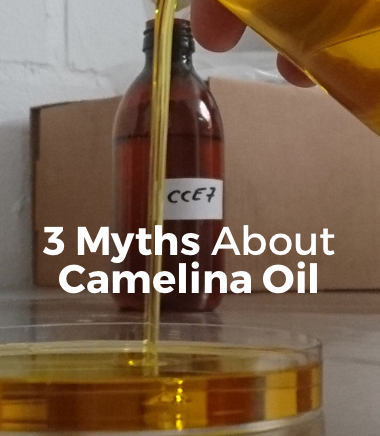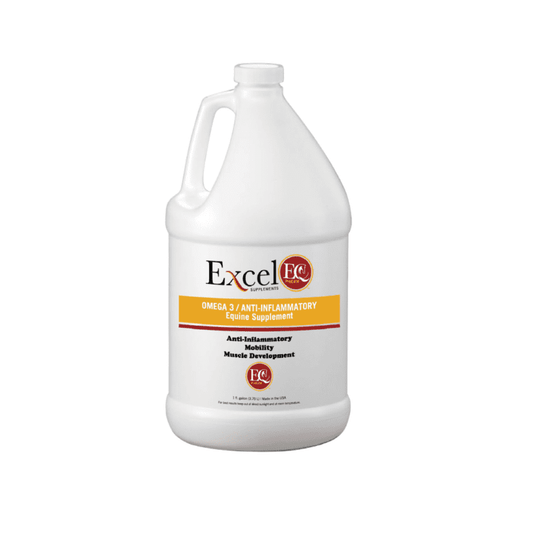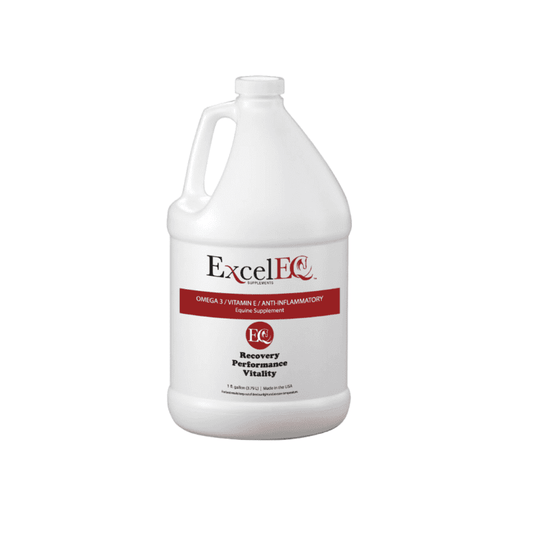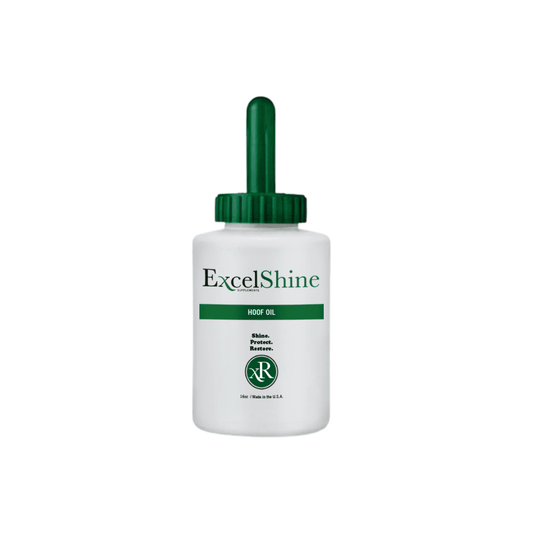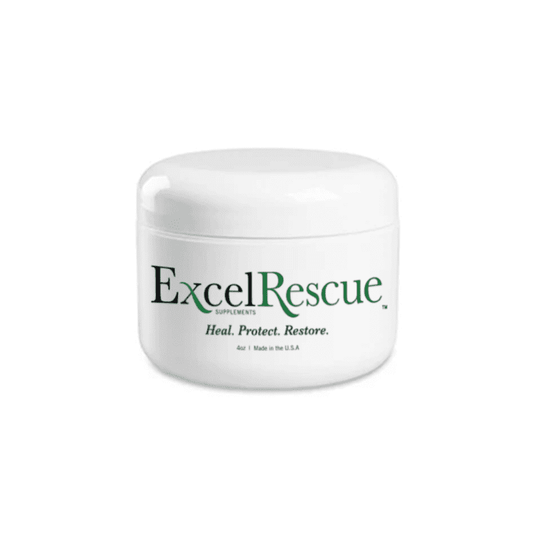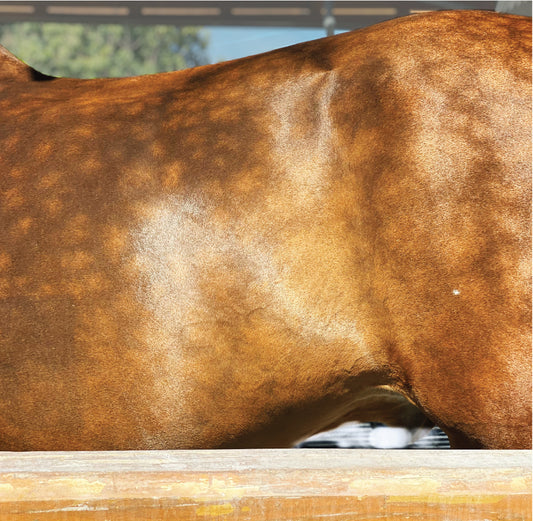PSSM In The Horse
What is PSSM?
Polysaccharide storage myopathy (PSSM) is characterized by the abnormal accumulation of muscle glycogen. Glycogen is the storage form of sugar in muscles. This abnormality in glycogen metabolism damages skeletal muscle and leads to painful episodes of tying up. There are two forms of PSSM: Type 1 and Type 2. Type 1 PSSM is genetic and is caused by a gene mutation. The cause of Type 2 PSSM has yet to be identified.
Fight PSSM With ProElite Today!

..management of a PSSM diet includes strict limitations of sugar and starch in any form. Excel is a perfect supplement for these horses because it contains no sugar."
What are the clinical signs of PSSM?
Horses with PSSM typically have calm dispositions and are in good body condition. The clinical signs of a PSSM episode are typically associated with tying-up. These signs are most commonly muscle stiffness, sweating, and reluctance to move. The signs are most often seen in horses when they are put into initial training or after a lay-up period.
How do you diagnose PSSM?
PSSM can be diagnosed based on microscopic evaluation of a muscle biopsy in horses over two years-of-age, however, a definitive diagnosis of the type 1 form of PSSM requires genetic testing.

What can you do for treatment and prevention?
Carbohydrates that are high in starch, such as sweet feed, corn, wheat, oats, barley, and mo- lasses, appear to exacerbate PSSM. Thus management includes strict limitations of sugar and starch in any form.
Extra calories can be provided in the form of fat. Oils that provide balanced omega 3 to omega 6 fatty acids, like ExcelEQ ProElite can be a healthy alternative energy source that can aid in the stabilization of blood sugar. Fat is an important caloric supplement especially for the performance PSSM horse that requires additional energy reserves. In addition to grains, the sugar content in forage must be taken into consideration. High sugar content in hay can trigger a horse’s insulin response. It is important to select and feed hay that contains less than 10 percent NSC (sugar). Horses with PSSM may not be able to graze especially on lush green pasture.
Another important part of the management of PSSM horses is daily exercise. This enhances glucose utilization, and improves energy metabolism in skeletal muscle. If only the diet is changed, researchers found that approximately 50% of horses improve. If both diet and exercise are altered, then 90% of horses have had no or few episodes of tying-up. When designing a diet for horses with PSSM there are several important considerations and it is advised to consult an equine nutritionist.

